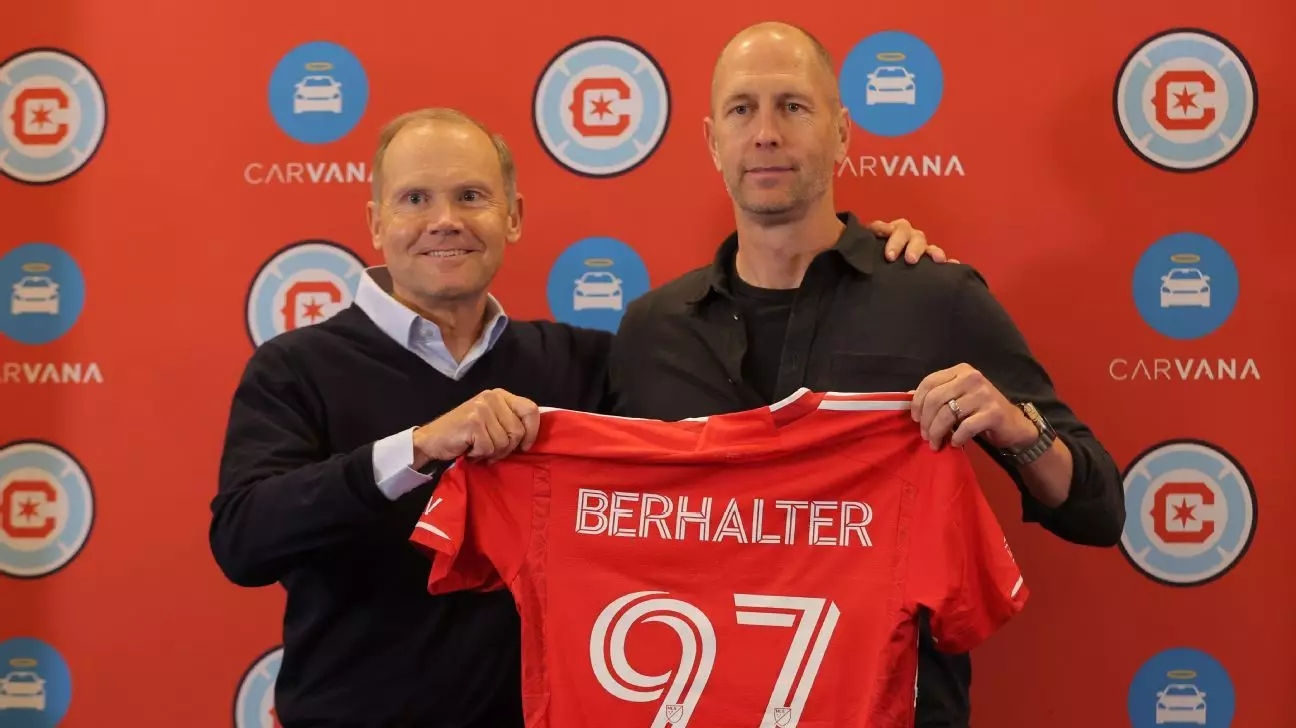In the realm of professional sports, the journey of a coach is often riddled with both tremendous highs and crushing lows. For Gregg Berhalter, the tipping point came last summer when he was dismissed from his position as head coach of the U.S. men’s national soccer team (USMNT). Berhalter characterized his firing as a “really difficult moment,” which is an understatement for someone deeply committed to his role. He candidly revealed that the experience resembled a personal tragedy, describing the emotional toll and grief that followed the abrupt end to his tenure.
During his time away from the game, Berhalter found solace in his family, allowing himself the necessary space to process his feelings of disappointment and sadness. This reflection period was crucial, as it gave him the opportunity to analyze the reasons behind the USMNT’s lackluster performance in the summer’s Copa América tournament. Acknowledging the team’s shortcomings—and his role in them—was not merely an act of accountability; it served as a catalyst for his renewed ambition and hunger to return to the coaching ranks.
Fast forward to today, Berhalter stands before the Chicago Fire as both head coach and director of football, roles that he firmly believes offer a chance to revive a “sleeping giant.” The club’s owner, Joe Mansueto, expressed high hopes for building a more competitive atmosphere in Major League Soccer, and he sees in Berhalter the visionary leadership necessary to drive that change. This dual role allows Berhalter not only to influence the tactical fabric of the team but also to oversee player recruitment and development, creating a holistic approach to club management.
Berhalter’s prior experience at the Columbus Crew, where he successfully balanced both responsibilities, makes him a prime candidate for the task at hand. His appointment has sparked a sense of optimism among fans and players alike, as a revamped vision of what the Chicago Fire can achieve begins to take shape. Both Mansueto and Berhalter acknowledge that the Fire have struggled in recent years, failing to reach the playoffs for seven consecutive seasons. Turning this trend around is not just a goal; it’s a pressing imperative.
Underneath the surface of optimism lies a strategic framework aimed at fostering growth and sustainability. One of the most exciting prospects surrounding Berhalter’s appointment is the development of a new training facility, as well as the exploration of a soccer-specific stadium. These undertakings are pivotal in establishing the club’s identity and enhancing player development, and Mansueto is keen on laying the groundwork for a more robust soccer culture in Chicago.
However, the road ahead is not devoid of challenges. The urgency of preparing for the 2025 campaign means Berhalter has limited time to implement sweeping changes that could alter the course of the franchise. Mansueto’s decision to prioritize speed in hiring Berhalter—even after considering a long list of potential candidates—was motivated by the need for continuity and coherence in the club’s vision.
Moreover, Berhalter’s approach, characterized by active listening and collaboration, speaks volumes about his leadership style. Following his stint with the USMNT, he sought feedback from the players, a move that not only acknowledged their insights but also set the stage for a more involved coaching approach. This commitment to inclusivity is likely to foster better relationships and maximize team performance.
As Berhalter looks to shape the future of the Chicago Fire, he emphasizes the untapped potential within the organization. His remarks about the market and the team itself highlight his belief that prosperity lies ahead. With Mansueto’s backing, Berhalter is determined to create an environment where performance thrives, which resonates with both the players and fans looking for a revival.
In the backdrop of Berhalter’s new role is the significant transition at the USMNT, now headed by Mauricio Pochettino. Berhalter has expressed his support for his successor, indicating a professional camaraderie that could benefit U.S. soccer.
Ultimately, Berhalter’s return to coaching is a testament to resilience—the ability to rise again after facing adversity. His journey reflects the inherent cyclical nature of sports, where setbacks pave the way for growth and renewed vigor. As he embarks on this new chapter with the Chicago Fire, both strategic vision and emotional fortitude will be crucial as he endeavors to transform the fortunes of a team eager to reestablish its legacy in the realm of American soccer.

